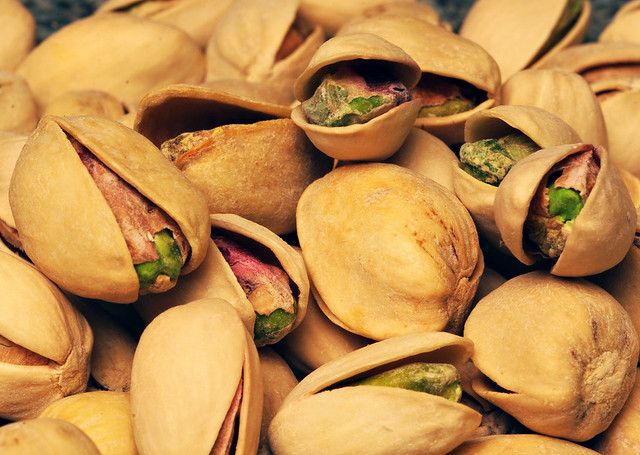
Vitamin D
Vitamin D is what you need to keep your teeth and bones healthy, it helps to absorb calcium. Now the good news is that a lot of your vitamin D can be sourced simply by just sitting out in the garden and soaking up the rays. However for those of us stuck in the office all day, or for throughout the winter months, there are other ways of making sure you get enough Vitamin D. Whilst carnivores can eat oily fish, vegetarians are advised to eat eggs, margarine and breakfast cereals. Kellogg's are great at labelling their cereals and a lot of them, such as Bran Flakes and Corn Flakes, are great for vitamin D.
Vitamins B12 and B2
Vitamin B12 is what you need to create red blood cells and help keep your nervous system healthy. It also plays a big part in releasing energy from the food we eat, and if you don't get enough vitamin B12 you could be suffering from vitamin B12 deficiency, which makes you tired all the time. Vitamin B12 isn't found in foods such as fruit, vegetables and grains so it's usually vegans who struggle to get enough. Virtually all meat products have a source of vitamin B12, but again fortified breakfast cereals, eggs, milk and cheese are all good sources for vegetarians.
Vitamin B2 is also needed to keep your nervous system healthy, aswell as keeping your skin and eyes in tip top condition. Yep, you guessed it - breakfast cereals prove to be a good source, aswell as dairy products like eggs and milk. Love them or hate them, mushrooms are also packed full of B2. Sunlight actually destroys vitamin B2 so it's advised to keep these products out of direct sunlight.
Iron
Iron is the big one that everyone always goes on about. If you don't get enough iron in your bloodstream, you'll develop anaemia. Most vegetarians (myself included) probably have anaemia and aren't even aware of it. To get enough iron you should be eating a lot of green leafy vegetables such as broccoli, spinach and kale. The bad news is that tea stops you absorbing iron, so it's important that you don't drink tea around the same time you eat if you want to benefit from all those vegetables. Instead, you should have some vitamin C, such as a glass of orange juice, at the same time as eating because this actually helps your body absorb iron.

Selenium
I'm going to be honest and say that selenium is something I had never heard of before I started reading up on nutrition. It's what helps you have a strong immune system - something which I definitely don't have. Selenium can be found in nuts, mainly brazil nuts, so I've requested more nuts in my Graze boxes. Bread and eggs also provide some selenium, but from what I've heard nuts are the best thing to be eating.
Omega-3 fatty acids
It is said that omega-3 reduces the risk of heart disease, aswell as helping with depression. It also helps your brain perform efficiently. I'm sure you've all been told that "fish makes you smarter" at some point, and this is where that quote originates from. For people like me, who really don't want to eat fish but would still like a healthy brain, things like avocado, walnuts, tofu and pumpkin seeds are just what we need.
Now I am obviously not a doctor or a nutrionist but this is just some basic information that I've found useful in making sure I have a healthy diet. I also take Vegetarian Multivitamins (and have noticed a real different in the condition of my nails, and quite possibly higher energy levels sine starting to take them a few weeks ago) but you should always try and get as much of your nutritional intake from your diet as possible.







this is a really interesting read.
ReplyDeleteI have been veggie for 7 years but just recently have found myself getting really tired. I deffo don't get all the nutrients I need & this has spurred me to really look @ what I eat :o) xx
http://www.mystyledefine.blogspot.com/
I've been vegetarian since I was about 3, when my mum was feeding me sausage and told me it was "pig" when I asked what it was, so I find posts like this so helpful :)
ReplyDeleteI take multi-vitamins every morning, though I'm always sceptical about how useful they actually are!
xxx
I've been a veggie for about a year and a half now. That's not very long compared to some people but I really can't see myself going back to eating meat, even the very thought of it scares me a little! I know I don't get all the right nutrients I need and some days I do find myself getting tired and a little weak. When I do feel that way I normally have a bowl of cheerios because they are quite high in Iron (so I'm told!) and it really does make me feel better! I know its not the healthiest thing but I'm getting there. This post was really helpful to me and I think I'm going to order some of those multivitamins you take :) xxx
ReplyDeleteGreat post, I'm not vegetarian but I rarely eat meat so it's good to know other sources of all the essential vitamins and minerals. x
ReplyDelete